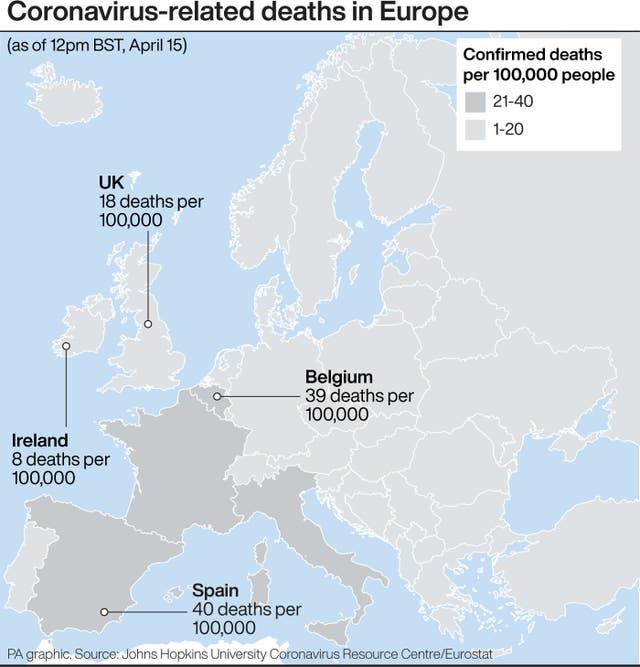Covid-19: Call for urgent mental health research to support people
Researchers say frontline medical staff and vulnerable groups must be a priority for support.

Mental health and brain research must be a higher priority in the response to the coronavirus outbreak, scientists have said.
They are calling for urgent real-time monitoring of mental health to be rolled out in the UK, and across the world.
In a paper published in Lancet Psychiatry, the researchers say frontline medical staff and vulnerable groups must be a priority for support.
The experts say that apps and digitally delivered programmes must be designed to protect people’s mental health during the Covid-19 lockdown.
They add that their paper highlights a vital need to tackle the harmful impacts of the pandemic on mental health and potentially the brain.
The 24 report authors write: “It is already evident that the direct and indirect psychological and social effects of the coronavirus disease 2019 (Covid-19) pandemic are pervasive and could affect mental health now and in the future.”
The paper calls for more widespread mental health monitoring and better ways to protect against, and treat, mental ill health – both of which will require new funding and better coordination.
According to an Ipsos Mori poll of 1099 members of the UK public, and a survey of 2198 people by the UK mental health research charity, MQ, the public already has substantial concerns about mental health in relation to coronavirus.
Both surveys were carried out in late March, the week lockdown measures were announced, to inform the Lancet Psychiatry paper.
They suggest the public had specific concerns related to Covid-19 including increased anxiety, fear of becoming mentally unwell, access to mental health services and the impact on mental wellbeing.
Paper author Professor Emily Holmes from the Department of Psychology, Uppsala University in Sweden, said: “We are all dealing with unprecedented uncertainty and major changes to the way we live our lives as a result of the coronavirus pandemic.
“Our surveys show these changes are already having a considerable impact on our mental health.
“Governments must find evidence-based ways to boost the resilience of our societies and find ways to treat those with mental ill health remotely to come out of this pandemic in good mental health.
“Frontline medical staff and vulnerable groups such as the elderly and those with serious mental health conditions must be prioritised for rapid mental health support.”

The paper also calls for the rapid roll out of evidence-based programmes and treatments, which can be accessed by computer, mobile phone or other remote ways, to treat mental health conditions and increase resilience to keep people mentally healthy.
The expert group, which was established and supported by the Academy of Medical Sciences and the mental health research charity, MQ, came together to create the road map they have published.
Professor Matthew Hotopf is vice dean research at King’s College London’s Institute of Psychiatry Psychology and Neuroscience and director NIHR Maudsley Biomedical Research Centre and one of the paper authors.
He said: “Knowing what is happening in real time will allow us to respond by designing more user friendly and effective ways to promote good mental health while people are in their homes.
“Above all, however, we want to stress that all new interventions must be informed by top notch research to make sure they work.”
While Rory O’Connor, professor of health psychology at the University of Glasgow, and one of the paper authors said: “Increased social isolation, loneliness, health anxiety, stress and an economic downturn are a perfect storm to harm people’s mental health and wellbeing.
“If we do nothing we risk seeing an increase in mental health conditions such as anxiety and depression, and a rise in problem behaviours such as alcohol and drug addiction, gambling, cyberbullying or social consequences such as homelessness and relationship breakdown.
“The scale of this problem is too serious to ignore, both in terms of every human life that may be affected, and in terms of the wider impact on society.
“Despite this situation making some of us feel trapped, it shouldn’t make us feel powerless, we can make a difference if we act now.
“We are calling on funding bodies, research institutes and policy to act now to limit the impact the pandemic has on all our lives.”





